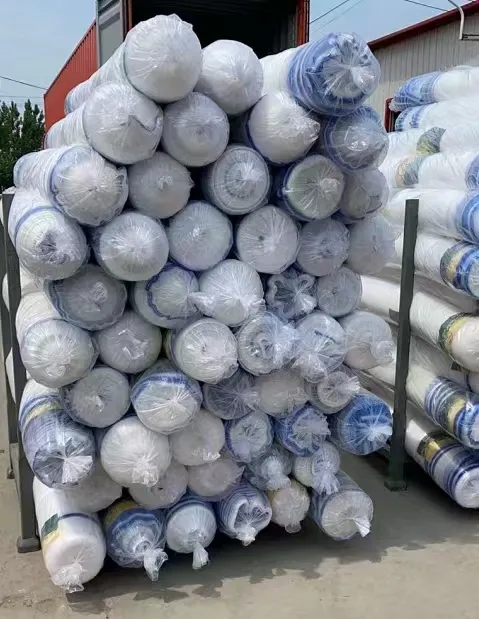-
 Afrikaans
Afrikaans -
 Albanian
Albanian -
 Amharic
Amharic -
 Arabic
Arabic -
 Armenian
Armenian -
 Azerbaijani
Azerbaijani -
 Basque
Basque -
 Belarusian
Belarusian -
 Bengali
Bengali -
 Bosnian
Bosnian -
 Bulgarian
Bulgarian -
 Catalan
Catalan -
 Cebuano
Cebuano -
 China
China -
 Corsican
Corsican -
 Croatian
Croatian -
 Czech
Czech -
 Danish
Danish -
 Dutch
Dutch -
 English
English -
 Esperanto
Esperanto -
 Estonian
Estonian -
 Finnish
Finnish -
 French
French -
 Frisian
Frisian -
 Galician
Galician -
 Georgian
Georgian -
 German
German -
 Greek
Greek -
 Gujarati
Gujarati -
 Haitian Creole
Haitian Creole -
 hausa
hausa -
 hawaiian
hawaiian -
 Hebrew
Hebrew -
 Hindi
Hindi -
 Miao
Miao -
 Hungarian
Hungarian -
 Icelandic
Icelandic -
 igbo
igbo -
 Indonesian
Indonesian -
 irish
irish -
 Italian
Italian -
 Japanese
Japanese -
 Javanese
Javanese -
 Kannada
Kannada -
 kazakh
kazakh -
 Khmer
Khmer -
 Rwandese
Rwandese -
 Korean
Korean -
 Kurdish
Kurdish -
 Kyrgyz
Kyrgyz -
 Lao
Lao -
 Latin
Latin -
 Latvian
Latvian -
 Lithuanian
Lithuanian -
 Luxembourgish
Luxembourgish -
 Macedonian
Macedonian -
 Malgashi
Malgashi -
 Malay
Malay -
 Malayalam
Malayalam -
 Maltese
Maltese -
 Maori
Maori -
 Marathi
Marathi -
 Mongolian
Mongolian -
 Myanmar
Myanmar -
 Nepali
Nepali -
 Norwegian
Norwegian -
 Norwegian
Norwegian -
 Occitan
Occitan -
 Pashto
Pashto -
 Persian
Persian -
 Polish
Polish -
 Portuguese
Portuguese -
 Punjabi
Punjabi -
 Romanian
Romanian -
 Russian
Russian -
 Samoan
Samoan -
 Scottish Gaelic
Scottish Gaelic -
 Serbian
Serbian -
 Sesotho
Sesotho -
 Shona
Shona -
 Sindhi
Sindhi -
 Sinhala
Sinhala -
 Slovak
Slovak -
 Slovenian
Slovenian -
 Somali
Somali -
 Spanish
Spanish -
 Sundanese
Sundanese -
 Swahili
Swahili -
 Swedish
Swedish -
 Tagalog
Tagalog -
 Tajik
Tajik -
 Tamil
Tamil -
 Tatar
Tatar -
 Telugu
Telugu -
 Thai
Thai -
 Turkish
Turkish -
 Turkmen
Turkmen -
 Ukrainian
Ukrainian -
 Urdu
Urdu -
 Uighur
Uighur -
 Uzbek
Uzbek -
 Vietnamese
Vietnamese -
 Welsh
Welsh -
 Bantu
Bantu -
 Yiddish
Yiddish -
 Yoruba
Yoruba -
 Zulu
Zulu
Effective Strategies for Installing Durable Wire Livestock Fencing to Secure Your Farm Animals
The Importance and Benefits of Wire Livestock Fencing
Wire livestock fencing is an essential component in agricultural and farming operations, providing a reliable and durable solution for containing and protecting animals. The right type of fencing not only ensures the safety of livestock but also enhances the overall management of farm operations. In this article, we will explore the various aspects and benefits of wire livestock fencing, highlighting its significance in modern agriculture.
Durability and Strength
One of the primary advantages of wire fencing is its durability. Unlike wooden fences that can rot or decay over time, wire fences are designed to withstand harsh weather conditions and the test of time. Made from high-quality materials such as galvanized steel or stainless steel, wire fencing is resistant to rust and corrosion, making it an ideal choice for outdoor environments. This longevity means that farm owners can invest in wire fencing without the constant need for repairs or replacements, ultimately saving money in the long run.
Versatility in Design
Wire livestock fencing comes in various designs and configurations, allowing farmers to choose the best option for their specific needs. Whether it’s rectangular, square, or circular, the adaptability of wire fencing can cater to different terrains and landscapes. Furthermore, different types of wire fencing, such as barbed wire, woven wire, and electric fencing, provide options for different livestock species. For instance, barbed wire is commonly used for larger animals like cattle, while woven wire is suitable for smaller animals such as sheep or goats.
Cost-Effectiveness
Another significant benefit of wire fencing is its cost-effectiveness. While the initial investment may seem higher compared to traditional wooden fencing, the long-term savings are considerable. Wire fencing requires less maintenance and fewer repairs, which can significantly reduce ongoing operational costs. Additionally, its robust nature means farmers do not need to frequently replace sections of the fence, further enhancing its economic viability.
wire livestock fencing

Enhanced Security and Protection
Wire fencing provides an exceptional level of security for livestock. It acts as a physical barrier that prevents animals from escaping, which can protect them from potential dangers such as predators or accidents on busy roads. For farmers, the assurance that their livestock is safe and secure allows them to focus on other essential activities. Moreover, wire fences help in preventing unwanted animals from entering the pasture, reducing the risk of disease transmission and protecting the health of the livestock.
Ease of Installation
Installing wire livestock fencing is generally more straightforward and less labor-intensive compared to other materials. Many farmers choose to install the fencing themselves, saving on labor costs. The flexibility of wire fencing allows farmers to create enclosures that can easily be modified or expanded as their needs change. This adaptability is particularly valuable in livestock farming where herd sizes and grazing patterns may fluctuate.
Environmental Benefits
Wire fencing is also more environmentally friendly than traditional fencing materials. By using metal rather than wood, farmers help to reduce deforestation and the impact on natural habitats. Furthermore, wire fences can be recycled at the end of their life cycle, contributing to sustainable farming practices.
In conclusion, wire livestock fencing is an invaluable tool for farmers and ranchers. Its durability, versatility, cost-effectiveness, and enhanced security make it a superior choice for managing livestock. As agricultural practices continue to evolve, so too does the technology and materials used in livestock management, but the reliability of wire fencing remains a timeless asset in any farming operation. Adopting wire livestock fencing is not just a practical decision; it is a step towards more efficient and responsible farming.
-
Shipping Plastic Bags for Every NeedNewsJul.24,2025
-
Safety Netting: Your Shield in ConstructionNewsJul.24,2025
-
Plastic Mesh Netting for Everyday UseNewsJul.24,2025
-
Nylon Netting for Every UseNewsJul.24,2025
-
Mesh Breeder Box for Fish TanksNewsJul.24,2025
-
Expanded Steel Mesh Offers Durable VersatilityNewsJul.24,2025











